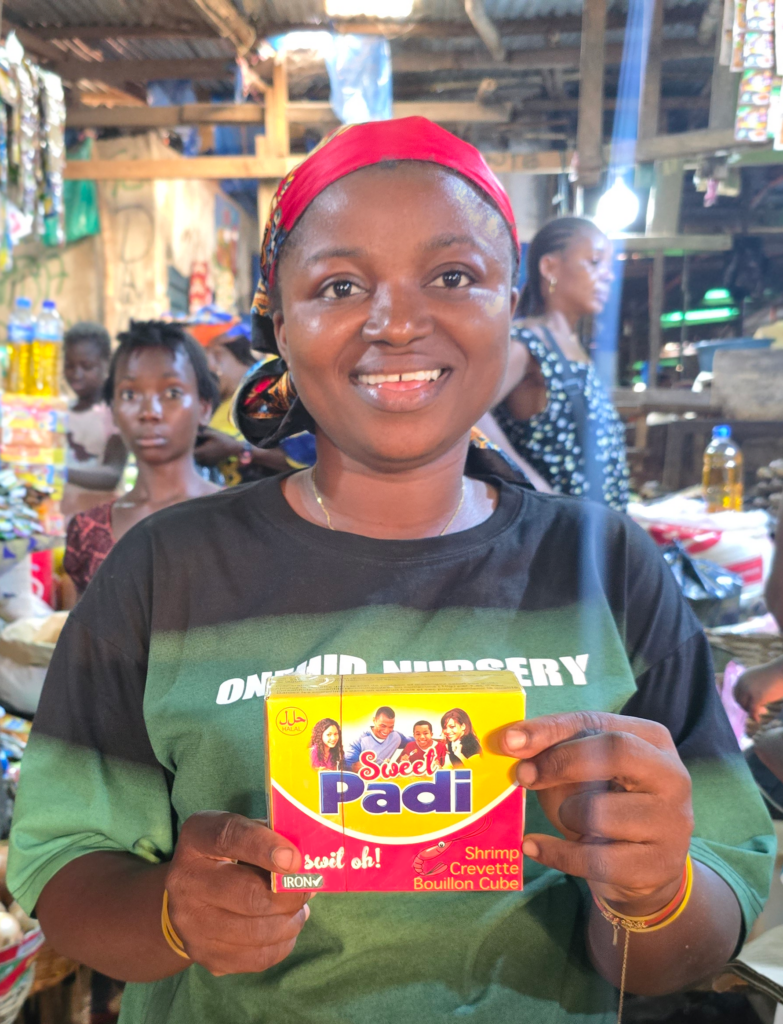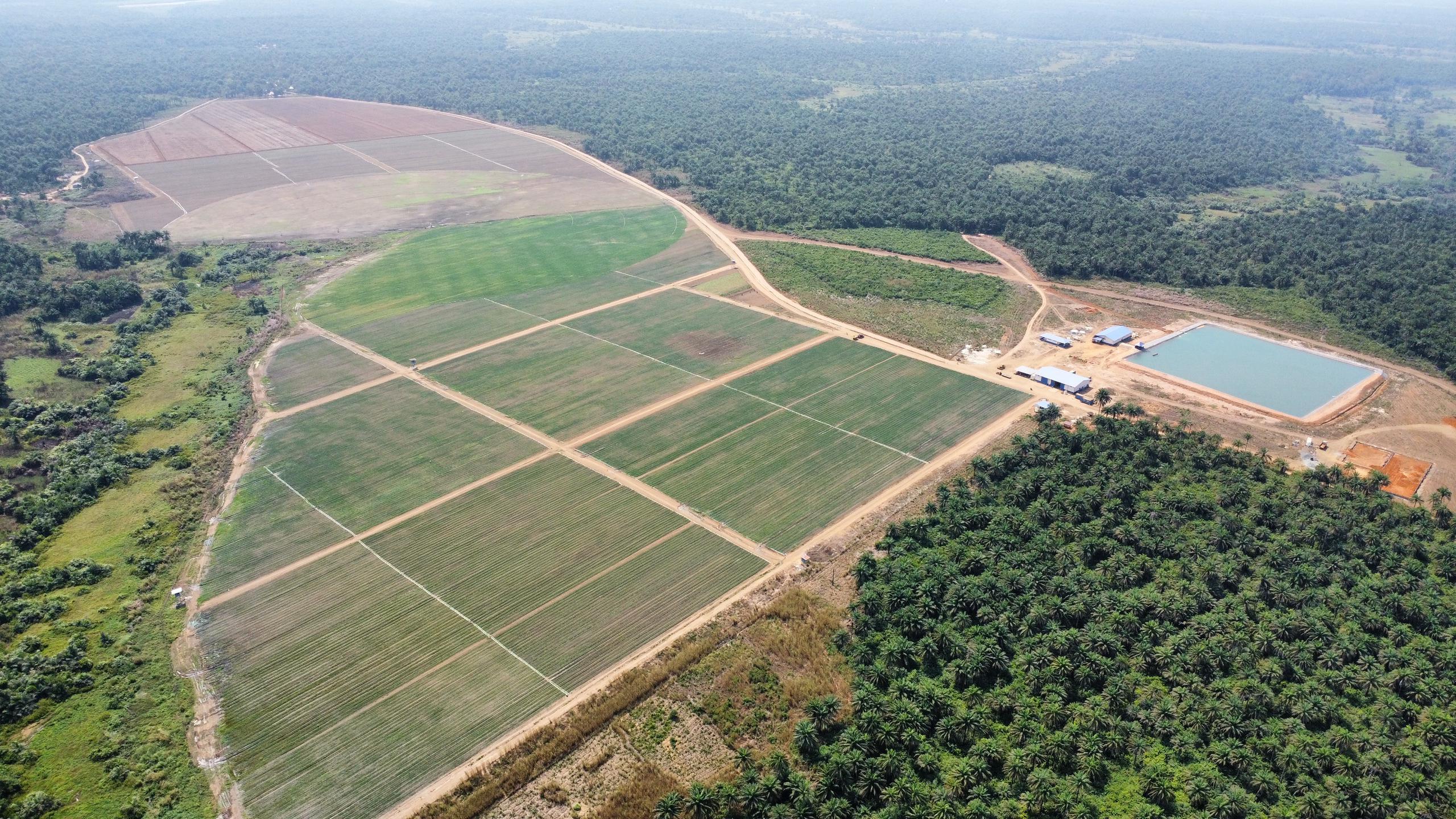Integrating traditional business acumen with innovative strategies to drive industrial and agricultural transformation, Pee Cee Holding Ltd is fostering a self-sufficient and globally competitive Sierra Leone.
“My vision has always been to focus on producing locally rather than relying on imports.” Mahesh Nandwani, CEO of Pee Cee Holding Ltd
Established in 1965, Pee Cee & Sons began its operations as a small trading shop in Freetown. Over the following decades, the company rose to become one of West Africa’s most prominent distribution and marketing firms, with a footprint spanning Sierra Leone, Liberia, Guinea, and Senegal. Its diverse portfolio includes internationally renowned brands across multiple categories, as well as a private label brand, Padi, with over 20 products under the umbrella. At the core of this success is Pee Cee Holding Ltd, the parent company that oversees six subsidiaries with operations strategically aligned to enhance local production, bolster regional trade, and fortify supply chain resilience.

Mahesh Nandwani, the company’s CEO, has steered Pee Cee Holding Ltd toward redefining Sierra Leone’s industrial and agricultural landscape. “My vision has always been to focus on producing locally rather than relying on imports. Whatever we can make or grow in Sierra Leone, I believed we should. That’s what led me to gradually expand into industries,” he shares.
His focus on localized production anchors Pee Cee Holdings’ strategy and exposes the precariousness of import-reliant economies while unlocking the vast potential of self-sustained growth.
Loading...
One of Pee Cee Holdings’ most ambitious undertakings is Pee Cee Agriculture Ltd, a subsidiary poised to redefine the agricultural landscape of Sierra Leone. At the heart of this effort is a 646-hectare farm equipped with mechanized irrigation systems, advanced sorting facilities, and high-capacity storage capable of preserving crops for months. Currently focused on onions—a crop for which Sierra Leone imports 80% of its supply—the farm represents a deliberate pivot toward food security. “By the third or fourth year, we aim to significantly reduce onion imports,” explains Nandwani. In April 2024, President Julius Maada Bio visited Pee Cee Agriculture Ltd at Mathen Village, Lokomasama, expressing his support and admiration for the company’s agricultural advancements. The President ceremoniously opened the onion harvest and reaffirmed his support for Pee Cee’s upcoming ventures in rice farming.

As the company’s aspirations extend beyond onions, diversification into maize, Irish potatoes, and other high-demand crops is already underway, supported by partnerships with a university to foster local agricultural expertise. Each year, graduates undergo rigorous training programs, with the best candidates offered full-time roles. The firm’s approach reflects a profound understanding of agriculture not as an isolated endeavor but as an interplay of interconnected systems —soil health, mechanization, climate adaptation, and value chain integration. Pee Cee Holdings’ investments in these areas signal a broader recognition that agriculture when treated as a strategic sector, can be a cornerstone of economic transformation.
If Pee Cee Agriculture Ltd lays the groundwork for a self-sufficient Sierra Leone, Jolaks Manufacturing Company Ltd exemplifies how industrialization can turn vision into tangible outcomes. With a refinery processing 9,000 metric tons of crude palm oil monthly, Jolaks has transformed the dynamics of the local market. “This is one of the largest industries in the Mano River Union, processing crude palm oil into vegetable cooking oil.
The factory opened in 2019 and has been a source of pride for the group and the country, contributing to macroeconomic development, manufacturing, job creation, and value addition,” Nandwani notes. Once reliant on imported vegetable oil, Sierra Leone now not only meets its domestic needs but also exports to neighboring countries, including Senegal and Liberia. The refinery’s outputs, including stearin and Palm Fatty Acid Distillate (PFAD), fuel downstream industries such as soap manufacturing, creating a ripple effect of economic activity.
“Crude palm oil yields many byproducts, and our latest plan is to diversify further by producing sweet, condensed milk locally in Freetown,” notes Nandwani. Similarly, Milla Group S.L. Ltd, the group’s flagship plastics subsidiary, has transcended its initial purpose of addressing post-war water distribution challenges. Today, it is a dominant force in Sierra Leone’s plastics industry, producing water tanks, PVC pipes, and consumer goods that are integral to the region’s development.
The introduction of Padi seasoning cubes is another feather in Pee Cee Holdings’ umbrella. Once packaged abroad, these products are now manufactured locally, reinforcing the group’s philosophy of backward integration. “Now we’re packaging it here in Cline Town under Padi,” says Nandwani. This shift reduces costs and strengthens Sierra Leone’s manufacturing ecosystem by creating jobs and fostering local expertise.
Pee Cee Holdings’ pipeline of projects reveals a deliberate strategy to deepen its impact. The company plans to expand its agricultural operations to 400–500 hectares, enhance mechanized systems, and establish partnerships with companies in Côte d’Ivoire and Guinea. Additionally, an investment hub in Cline Town is due to be installed in May/June 2025. It is designed to centralize storage, sales, and distribution while reducing logistical costs. The hub, strategically located near the port, positions Pee Cee Holding Ltd to serve both local and regional markets more effectively.
In 2020, the Covid-19 pandemic laid bare the vulnerabilities of Sierra Leone’s reliance on imports, but Pee Cee Holding Ltd turned this disruption into an opportunity for recalibration. The company aligned its investments with the government’s Feed Salone initiative, prioritizing food security and agricultural self-reliance. This pivot showcases the firm’s resilience in navigating global challenges and positioning itself as a key contributor to national priorities.
In taking these measures, Pee Cee Holding Ltd serves as an archetype of what businesses must become to thrive in the complex realities of the 21st century. At its core is a recognition that businesses thrive best in societies that are thriving, and every investment in local capacity building is an investment in the company’s own longevity. As Pee Cee Holding Ltd prepares
to enter new markets and scale existing operations, its trajectory offers a blueprint for what is possible when business acumen meets visionary leadership. “I encourage investors to explore agriculture, which is one of the most lucrative opportunities in Sierra Leone,” notes Nandwani. “Our land and soil are among the best I’ve seen anywhere. Beyond agriculture, there is significant potential across industries, as Sierra Leone has a limited industrial base. The local population is eager for locally manufactured products, making it far more beneficial to produce these items domestically rather than relying on imports and spending foreign exchange.” Through its ventures in agriculture, manufacturing, and retail, Pee Cee Holding Ltd is writing a new narrative for Sierra Leone—one where self-reliance, innovation, and strategic thinking redefine what’s possible.
Loading...
